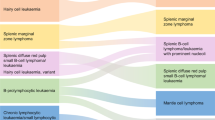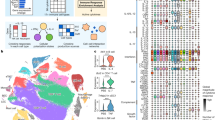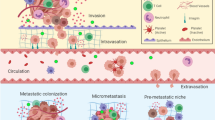Abstract
Malignant cells frequently acquire a certain independency of exogenous growth factors via the coexpression of epidermal growth factor receptor (EGFR) and epidermal growth factor (EGF)-related molecules. In the present study we investigate a possible involvement of EGF-related molecules in the growth of human lung mesothelioma. Four well-characterised cell lines are analysed for their responsiveness to exogenous EGF and transforming growth factor alpha (TGF-alpha) as well as for coexpression of EGFR and EGF/TGF-alpha. Both growth factors are able to stimulate DNA synthesis in three cell lines, although the degree of responsiveness is very variable, but neither EGF nor TGF-alpha has an effect on the cell line ZL34. In contrast, no heterogeneity is observed in the expression of EGFR, which is similarly high in all cell lines. Analysis of cell supernatants reveals that, whereas no EGF is detected, TGF-alpha is released by two cell lines. Furthermore, these two cell lines, ZL5 and ZL34, are shown to express the membrane anchored precursor pro-TGF-alpha. Thus, coexpression of EGFR and TGF-alpha is observed on two mesothelioma cell lines. The potential autocrine mitogenic role of TGF-alpha in these two cell lines was tested using neutralising antibodies against TGF-alpha and EGFR. In ZL5 cells DNA synthesis was not affected by the presence of neutralising antibodies, indicating that an external autocrine mitogenic pathway is not active in these cells. In ZL34 cells, however, the potential autocrine loop could be disrupted, as DNA synthesis was significantly reduced in the presence of neutralising antibodies. This result gives strong evidence for an autocrine role of TGF-alpha in the growth of the mesothelioma cell line ZL34.
This is a preview of subscription content, access via your institution
Access options
Subscribe to this journal
Receive 24 print issues and online access
$259.00 per year
only $10.79 per issue
Buy this article
- Purchase on Springer Link
- Instant access to full article PDF
Prices may be subject to local taxes which are calculated during checkout
Similar content being viewed by others
Author information
Authors and Affiliations
Rights and permissions
About this article
Cite this article
Mórocz, I., Schmitter, D., Lauber, B. et al. Autocrine stimulation of a human lung mesothelioma cell line is mediated through the transforming growth factor alpha/epidermal growth factor receptor mitogenic pathway. Br J Cancer 70, 850–856 (1994). https://doi.org/10.1038/bjc.1994.410
Issue Date:
DOI: https://doi.org/10.1038/bjc.1994.410



